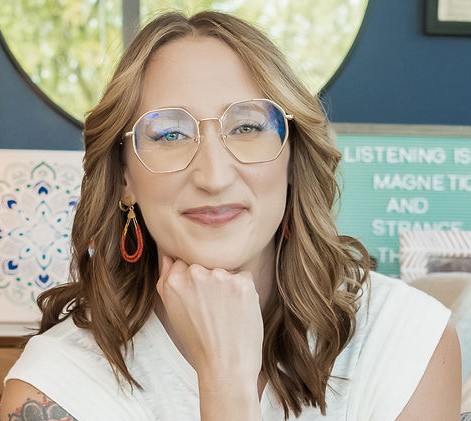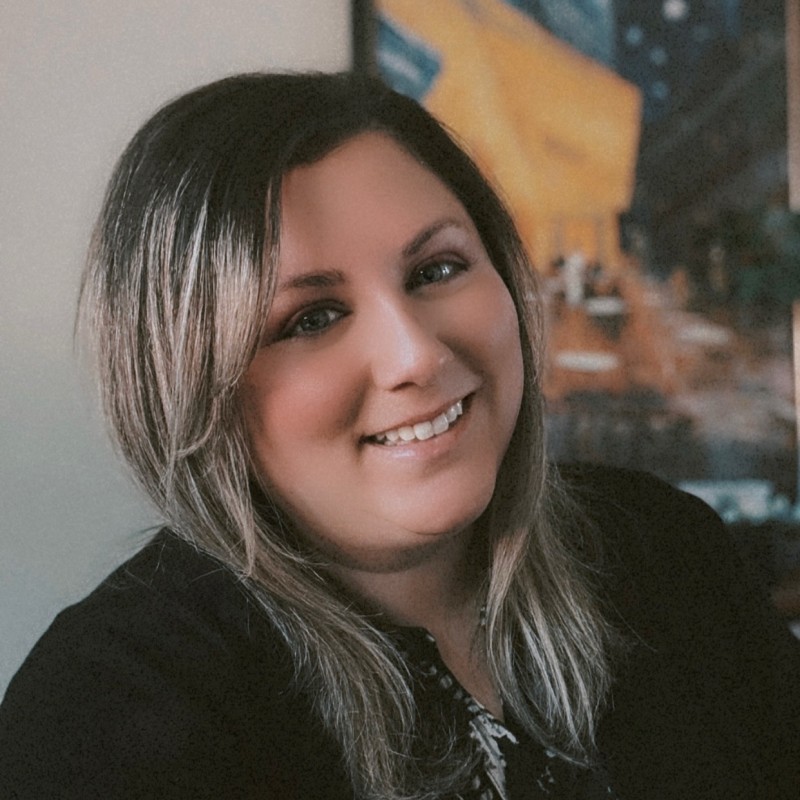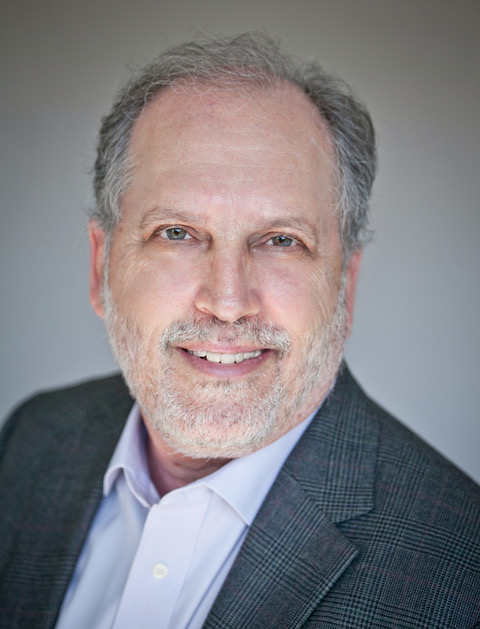How to Deal With Depression: 9 Proven Recovery Methods



Caroline Beidler, MSW is an author, speaker, and the Managing Editor of Recovery.com. She writes about topics related to addiction, mental health, and trauma recovery, informed by her personal experience and professional expertise.

Dr. Mala, is the Chief Clinical Officer at Recovery.com, where she develops impartial and informative resources for people seeking addiction and mental health treatment.




Caroline Beidler, MSW is an author, speaker, and the Managing Editor of Recovery.com. She writes about topics related to addiction, mental health, and trauma recovery, informed by her personal experience and professional expertise.

Dr. Mala, is the Chief Clinical Officer at Recovery.com, where she develops impartial and informative resources for people seeking addiction and mental health treatment.
Table of Contents
- 1. Understand the Condition: Recognizing Depression’s Impact
- 2. Assess Personal Risk Factors: Customizing Your Recovery Approach
- 3. Identify Your Depression Type: Targeting the Right Treatment
- 4. Monitor Your Symptoms: Tracking Progress for Effective Recovery
- 5. Identify Root Causes: Understanding Depression’s Origins
- 6. Seek Proper Diagnosis: Working With Healthcare Professionals
- 7. Explore Treatment Options: Finding Your Path to Recovery
- 8. Practice Prevention Strategies: Building Mental Health Resilience
- 9. Develop Daily Management: Living Well Despite Depression
Depression can feel like an invisible weight, making even the simplest tasks seem overwhelming. If you’re wondering how to deal with depression, you’re taking an important first step—and effective help is available.
Recovery from depression is entirely possible through a combination of professional treatment, self-care strategies, and support from others. Here, we outline 9 proven strategies that have helped countless people living with depression reclaim their mental well-being.

1. Understand the Condition: Recognizing Depression’s Impact
Depression is a common and serious mental health condition that affects how you feel, think, and handle daily activities. Globally, depression impacts 5% of the adult population and 13% of adolescents.1 Also known as major depressive disorder or clinical depression, it can cause persistent feelings of sadness, hopelessness, and a loss of interest in activities once enjoyed.
Adolescents can be especially vulnerable to depression due to hormonal changes, academic and social pressures, identity development, and increasing exposure to social media and cyberbullying. For teens, the prevalence of major depressive episodes was also higher among females at 29.2%.2
Dr. Kay Redfield Jamison, a clinical psychologist and professor of psychiatry at Johns Hopkins University who has written extensively about her own experience with bipolar disorder and depression, shares in her memoir An Unquiet Mind:3
Depression is awful beyond words or sounds or images. It bleeds relationships, blanches pleasure, eats memory, peace and self-respect.
While it can be one of the most challenging mental health conditions, when we understand what depression is and other aspects, it can help support long-term and sustained recovery.

2. Assess Personal Risk Factors: Customizing Your Recovery Approach
Depression is a complex mental health condition that can affect individuals of any age, gender, background, or income level. However, certain factors may increase the risk of developing depression:
- Family history of mental illness or mental health problems: Individuals with a family history of depression or other mental disorders are at a higher risk of experiencing depression themselves.
- Chronic medical conditions: Living with chronic illnesses, such as heart disease, can elevate the likelihood of developing depression.4
- Exposure to trauma: Experiencing traumatic events, especially during childhood, significantly increases the risk of depression.5
- Substance use: The misuse of substances like alcohol and drugs is closely linked to the onset and severity of depression.6
Understanding these risk factors is crucial for early identification and intervention, which can lead to more effective management and treatment of depression.
How has managing depression—either personally or professionally—shaped your understanding of mental health and well-being?

3. Identify Your Depression Type: Targeting the Right Treatment
There are several types of depression, each with distinct characteristics:
- Major depressive disorder (MDD): Severe symptoms that interfere with daily life. MDD is characterized by a persistently low mood, anhedonia (loss of interest or pleasure), feelings of guilt or worthlessness, fatigue, and other symptoms that impair daily functioning.7 Diagnosis requires at least 5 symptoms present most of the day, nearly every day, for a minimum of 2 weeks. It’s one of the leading causes of disability worldwide.
- Persistent depressive disorder: Long-term (2 years or more) symptoms that may be less severe but still disabling. This chronic form of depression involves a depressed mood lasting for at least 2 years in adults (one year in children and adolescents), accompanied by additional depressive symptoms that may not meet the criteria for MDD but still cause significant distress.8
- Bipolar disorder: Involves episodes of depression alternating with mania.9 Bipolar disorder includes episodes of depression alternating with periods of mania or hypomania. The depressive episodes share similarities with MDD, but the presence of manic symptoms distinguishes bipolar disorder from unipolar depression.
- Postpartum depression: Occurs after childbirth. This type of depression occurs after childbirth, characterized by sadness, fatigue, changes in sleeping and eating patterns, reduced libido, and crying episodes. It’s more severe and longer-lasting than the “baby blues.”
- Seasonal affective disorder (SAD): Related to changes in seasons, typically starting in the fall or winter. SAD is a subtype of depression that occurs at a specific time of year, usually in the fall or winter, and remits in the spring. Symptoms include low energy, hypersomnia, overeating, weight gain, and craving for carbohydrates.10

4. Monitor Your Symptoms: Tracking Progress for Effective Recovery
Persistent Feelings of Sadness or Hopelessness
This isn’t just “feeling down” for a day or 2. It’s a heavy, lingering sadness that doesn’t seem to lift, even when good things happen. You might wake up with a pit in your stomach or go to bed feeling like nothing will ever get better. Hopelessness can feel like your future has disappeared into fog.
Loss of Interest in Hobbies and Activities
Things that once brought you joy—music, cooking, hiking, spending time with friends—start to feel meaningless. You might force yourself to participate, but it feels like going through the motions. It’s not laziness; it’s as if your connection to pleasure has been cut off.
What treatment strategies or coping tools have you found most effective in reducing symptoms of depression and improving day-to-day life?

Sleep Problems (Insomnia or Oversleeping)
You might lie awake for hours, exhausted but wired with worry. Or, sleep might become your escape, and even after 10–12 hours, you still feel tired. Either way, it disrupts your rhythm and makes the days feel even harder to face.
Weight Loss or Weight Gain
Your appetite may vanish entirely, or food might become a form of comfort. You may notice clothes fitting differently, but not care enough to do anything about it. These changes can be subtle or dramatic, but they often reflect deeper emotional shifts.
Fatigue or Low Energy
This isn’t just being tired—it’s like your body has run out of fuel. Even small tasks, like taking a shower or replying to a text, can feel overwhelming. It’s frustrating because you want to do more, but the energy simply isn’t there.
Difficulty Concentrating
Reading a book or following a conversation can feel like trying to think through fog. Your brain just won’t focus. You may find yourself rereading the same sentence or zoning out in meetings, which adds to feelings of guilt or inadequacy.
Feelings of Worthlessness or Guilt
You might start believing you’re a burden or that you’ve let everyone down. Even small mistakes can spiral into overwhelming self-criticism. These thoughts don’t come from truth—they come from depression distorting your self-image.
Thoughts of Self-Harm or Suicidal Thoughts
In the darkest moments, depression can convince you that the world would be better off without you. These thoughts are serious and require compassionate, immediate support. You’re not alone, and help is available—even if it’s hard to ask.
These symptoms must last for at least 2 weeks to be considered a depressive episode.
But if you’re experiencing even one or 2 of these symptoms persistently, it’s worth talking to a mental health professional. If you are having thoughts of self-harm or suicidal ideation or thoughts, please reach out for emergency medical care. You are not alone.
The988 Lifeline is a resource for you at any time of the day, every day of the week.
5. Identify Root Causes: Understanding Depression’s Origins
Depression results from a combination of genetic, biological, environmental, and psychological factors. Common causes and risk factors include:
- Imbalances in brain chemicals like serotonin
- Traumatic life events or prolonged stress
- Chronic medical conditions or pain
- Substance use or withdrawal
- Low self-esteem or negative thoughts
- Family history of mental health conditions
What message would you share with someone currently experiencing depression who may feel hopeless or unsure about seeking help?

6. Seek Proper Diagnosis: Working With Healthcare Professionals
A health care provider or mental health professional diagnoses depression by evaluating your symptoms, personal history, and mental well-being. Tools like the PHQ-9 questionnaire may be used, and blood tests may help rule out underlying medical conditions.
- Self-report questionnaires: These are completed by the individual and ask about the presence and severity of depressive symptoms over a specific period (usually the past 2 weeks).
- Patient Health Questionnaire-9 (PHQ-9): This is a widely used, brief, 9-item self-report questionnaire. It directly corresponds to the DSM-5 criteria for major depressive disorder. It helps in diagnosing depression, assessing its severity (minimal, mild, moderate, moderately severe, severe), and monitoring treatment response. A score of 10 or higher is often used as a cut-off for indicating clinically significant depression. The PHQ-2, a shorter 2-item version, is often used as an initial screening tool.
- Beck Depression Inventory (BDI): This 21-item self-report inventory assesses the severity of depressive symptoms. Individuals rate the presence of various symptoms on a 0-3 scale. Higher total scores indicate more severe depression. It’s suitable for individuals aged 13 to 80 and has been validated across various populations.
- Center for Epidemiologic Studies Depression Scale (CES-D): This 20-item questionnaire was initially designed for use in the general population but is also used in primary care settings to screen for depressive symptoms. It asks about the frequency of symptoms in the past week, rated on a 4-point scale. It can be used for a wide age range, including children.
- Edinburgh Postnatal Depression Scale (EPDS): This 10-item self-report questionnaire is specifically designed to screen for depression in women after childbirth. It asks about symptoms experienced in the past week.
- Geriatric Depression Scale (GDS): This scale is specifically designed for older adults (60 years and over). It is available in different lengths (e.g., 30-item, 15-item, and a shorter 4-item version) and typically uses a yes/no format for responses, making it easier for some older individuals to complete.
- Clinician-administered rating scales: These scales are administered through structured interviews conducted by a healthcare professional.
Many behavioral healthcare providers use the DSM-5-TR to provide diagnostic criteria. For example, here is an example of the criteria for major depressive disorder.11
A diagnosis requires the presence of 5 or more of the following symptoms during the same 2-week period, with at least one of the symptoms being either depressed mood or loss of interest or pleasure:
- Depressed mood most of the day, nearly every day
- Markedly diminished interest or pleasure in all, or almost all, activities most of the day, nearly every day
- Significant weight loss or weight gain (when not dieting or an increase/decrease of more than 5% of body weight in a month), or decrease or increase in appetite nearly every day
- Insomnia or hypersomnia nearly every day
- Psychomotor agitation or retardation nearly every day (observable by others.
- Fatigue or loss of energy nearly every day
- Feelings of worthlessness or excessive or inappropriate guilt nearly every day
- Diminished ability to think or concentrate, or indecisiveness, nearly every day
- Recurrent thoughts of death (not just fear of dying), recurrent suicidal ideation without a specific plan, or a suicide attempt or a specific plan for committing suicide.
The symptoms must cause clinically significant distress or impairment in social, occupational, or other important areas of functioning and not be due to the direct physiological effects of a substance or another medical condition.
It’s important to note that while these tools are valuable for screening and assessing the severity of depressive symptoms, a diagnosis of depression should always be made by a qualified healthcare professional based on a comprehensive evaluation, including a clinical interview, the individual’s history, and the consideration of other potential medical or psychological conditions.
Screening tools help identify individuals who may need further evaluation and support from a trained medical or treatment professional.
7. Explore Treatment Options: Finding Your Path to Recovery
Psychotherapy (Talk Therapy)
- Cognitive behavioral therapy (CBT): CBT is a widely used form of therapy that helps individuals recognize and change negative thought patterns and behaviors. It’s especially effective in treating mild to moderate depression and can prevent relapse. Research supports CBT as one of the most effective interventions for depression.12
- Interpersonal therapy (IPT): IPT helps people improve communication and relationships, often disrupted by depression. It focuses on current interpersonal issues like grief, role transitions, or conflicts.
- Behavioral activation: This approach encourages individuals to engage in meaningful activities to increase positive reinforcement and reduce avoidance, a common symptom of depression.
Medication (Antidepressants)
Selective serotonin reuptake inhibitors (SSRIs) like fluoxetine and sertraline are commonly prescribed and have been shown to relieve symptoms in people with moderate to severe depression.
The National Institute of Mental Health highlights that antidepressants can take 4-8 weeks to work and should be closely monitored by a healthcare provider.13
Lifestyle Changes and Self-Care
- Regular exercise: Exercise boosts endorphins and supports neurogenesis, or the growth of new brain cells. It can be as effective as medication for mild depression.
- Sleep hygiene: Improving sleep routines can help stabilize mood and reduce depressive symptoms. Going to bed and waking up at the same time each day is a good place to start.
- Nutrition: A balanced diet rich in fruits, vegetables, whole grains, and omega-3 fatty acids supports brain health. Some studies suggest that dietary interventions may reduce depressive symptoms.
Social Support
- Group therapy and peer support: Talking with others facing similar struggles can reduce isolation and increase motivation. Group settings also allow for shared coping strategies.
- Family involvement: Involving supportive family members in the recovery process can improve outcomes and ensure a more stable environment.
Advanced and Emerging Treatments
- Mindfulness-based cognitive therapy (MBCT): MBCT combines mindfulness techniques with cognitive therapy to reduce relapse in those with recurrent depression.
- Transcranial magnetic stimulation (TMS): TMS uses magnetic pulses to stimulate areas of the brain associated with mood regulation. It’s FDA-approved for treatment-resistant depression.
- Ketamine and esketamine (Spravato): These medications offer rapid relief of symptoms and are typically used when other treatments haven’t worked. They must be administered under medical supervision.
8. Practice Prevention Strategies: Building Mental Health Resilience
Can I prevent depression?
While you can’t always prevent depression, there are ways to reduce your risk. Building up protective factors can help build resilience for this condition. However, often times, treatment is needed for long-term recovery and positive outcomes.
These are a few healthy coping strategies that you can try:
- Stay connected with a support group or loved ones
- Manage stress through mindfulness or gratitude practices14
- Maintain a healthy lifestyle with regular exercise and good nutrition
- Seek help early when experiencing symptoms
- Avoid alcohol and drug use, which can worsen mental health
With proper treatment and support, most people recover from depression. However, it can be a recurring condition, and managing long-term well-being is key. Early intervention improves outcomes, and ongoing support can help prevent relapse.
9. Develop Daily Management: Living Well Despite Depression
When should I see my healthcare provider about depression?
Depression isn’t just feeling sad—it can affect every part of your life. If you’re not sure when to ask for help, here are some key signs it’s time to reach out to a doctor, counselor, or mental health professional:
You should see your healthcare provider if:
- Symptoms last more than 2 weeks. Things like persistent sadness, fatigue, or loss of interest in activities you used to enjoy.
- You’re struggling with daily life. This might look like trouble at work, in relationships, or just keeping up with basic self-care.
- You have thoughts of self-harm or suicide. These thoughts are serious and deserve immediate attention. You are not alone, and help is available.
You are not alone. Many people—just like you—face depression. Healing is possible. And reaching out is a brave and important step toward recovery. Talk to someone you trust—a friend, pastor, or mentor—and let them know how you’re feeling.
Schedule an appointment with a primary care provider or therapist. You don’t need to have all the answers—just take the first step. Use support resources if you’re in immediate danger or need someone to talk to.
If this sounds like what you’re going through, take one small step today. Reach out to a professional or supportive friend. You are worth it. And help is just a conversation away.
Discover a Path to Healing
From intensive individual therapy programs to 24/7 structured support, the right solution is out there. Explore options for wellness-focused mental health treatment, trauma treatment centers, and more to find a safe space to heal. Find a mental health facility today and begin your journey toward stability and peace.
-
Depressive Disorder (Depression). https://www.who.int/news-room/fact-sheets/detail/depression. Accessed 28 Apr. 2025.
-
Major Depression - National Institute of Mental Health (NIMH). https://www.nimh.nih.gov/health/statistics/major-depression. Accessed 28 Apr. 2025.
-
Jamison, K. R. (1995). An unquiet mind: A memoir of moods and madness. Alfred A. Knopf.
-
Understanding the Link Between Chronic Disease and Depression - National Institute of Mental Health (NIMH). https://www.nimh.nih.gov/health/publications/chronic-illness-mental-health. Accessed 28 Apr. 2025.
-
Streit F, Völker MP, Klinger-König J, Zillich L, Frank J, Reinhard I, Foo JC, Witt SH, Sirignano L, Becher H, Obi N, Riedel O, Do S, Castell S, Hassenstein MJ, Karch A, Stang A, Schmidt B, Schikowski T, Stahl-Pehe A, Brenner H, Perna L, Greiser KH, Kaaks R, Michels KB, Franzke CW, Peters A, Fischer B, Konzok J, Mikolajczyk R, Führer A, Keil T, Fricke J, Willich SN, Pischon T, Völzke H, Meinke-Franze C, Loeffler M, Wirkner K, Berger K, Grabe HJ, Rietschel M. The interplay of family history of depression and early trauma: associations with lifetime and current depression in the German national cohort (NAKO). Front Epidemiol. 2023 May 23;3:1099235. doi: 10.3389/fepid.2023.1099235. PMID: 38523800; PMCID: PMC10959537.
-
Substance Use and Co-Occurring Mental Disorders - National Institute of Mental Health (NIMH). https://www.nimh.nih.gov/health/topics/substance-use-and-mental-health. Accessed 28 Apr. 2025.
-
Bains N, Abdijadid S. Major Depressive Disorder. [Updated 2023 Apr 10]. In: StatPearls [Internet]. Treasure Island (FL): StatPearls Publishing; 2025 Jan-. Available from: https://www.ncbi.nlm.nih.gov/books/NBK559078/
-
InformedHealth.org [Internet]. Cologne, Germany: Institute for Quality and Efficiency in Health Care (IQWiG); 2006-. Depression: Learn More – Types of depression. [Updated 2024 Apr 15]. Available from: https://www.ncbi.nlm.nih.gov/books/NBK279288/
-
Benazzi, Franco. ‘Various Forms of Depression’. Dialogues in Clinical Neuroscience, vol. 8, no. 2, June 2006, pp. 151–61. PubMed Central, https://www.ncbi.nlm.nih.gov/pmc/articles/PMC3181770/.
-
'Types of Depression’. InformedHealth.Org [Internet], Institute for Quality and Efficiency in Health Care (IQWiG), 2024. www.ncbi.nlm.nih.gov, https://www.ncbi.nlm.nih.gov/books/NBK279288/.
-
Tolentino, Julio C., and Sergio L. Schmidt. ‘DSM-5 Criteria and Depression Severity: Implications for Clinical Practice’. Frontiers in Psychiatry, vol. 9, Oct. 2018, p. 450. PubMed Central, https://doi.org/10.3389/fpsyt.2018.00450.
-
Souza, C. S., et al. ‘Systemic Photodynamic Therapy as an Option for Keratoacanthoma Centrifugum Marginatum Treatment’. Journal of the European Academy of Dermatology and Venereology: JEADV, vol. 23, no. 1, Jan. 2009, pp. 101–02. PubMed, https://doi.org/10.1111/j.1468-3083.2008.02744.x.
-
Depression - National Institute of Mental Health (NIMH). https://www.nimh.nih.gov/health/topics/depression. Accessed 28 Apr. 2025.
-
Wielgosz, Joseph, et al. ‘Mindfulness Meditation and Psychopathology’. Annual Review of Clinical Psychology, vol. 15, May 2019, pp. 285–316. PubMed Central, https://doi.org/10.1146/annurev-clinpsy-021815-093423.
Our Promise
How Is Recovery.com Different?
We believe everyone deserves access to accurate, unbiased information about mental health and recovery. That’s why we have a comprehensive set of treatment providers and don't charge for inclusion. Any center that meets our criteria can list for free. We do not and have never accepted fees for referring someone to a particular center. Providers who advertise with us must be verified by our Research Team and we clearly mark their status as advertisers.
Our goal is to help you choose the best path for your recovery. That begins with information you can trust.









